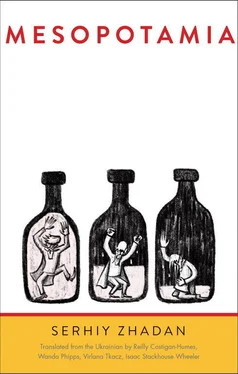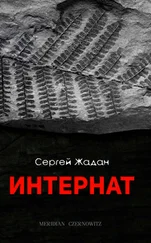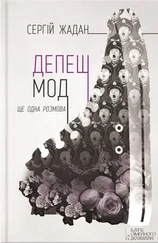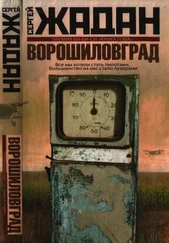“There was,” the first woman started, “nothing to do in my town except pound beers all day and fuck your brains out all night in the park by the jungle gym, the factories’ white smoke, the workers’ black eyes, and duplicitous raspberry bushes behind the brackish nighttime delta.”
“Yep, yep,” the other woman chimed in, “nothing to do, no attractions but dry southern wine and making love in the salt-parched grass. The hammerers’ black eyes and the fresh raspberries at the Sunday bazaars.”
Mark stared hard, trying to get a better look at the stranger. She was short and skinny with long, dark hair—weighed down now by the water—standing on her tiptoes, muscles taut with strain, but she still couldn’t reach anything, and she kept on swaying so bitterly that the song, already none too cheerful, became utterly hopeless.
“Everyone in town thought I was a tramp,” the first woman cried, “everyone hated me for my dyed curls and the golden chain on my defenseless neck. Every good-for-nothing scumbag on the street tried looking under my skirt and pawing my hips in the dark movie theater.”
“Yeah, that’s right,” the other woman continued, “black strands of hair glinted keenly in the dark pit of the movie theater, and forlorn men walked her home late at night, passing through the olive-colored evenings, mesmerized by the warm bronze gleam of her skin.”
“They loved her,” the other woman added, as though emphasizing an important point, “for her light heart and carefree nature.”
Mark listened and looked. She had slim and weightless calves, soft hips, and dark skin, as though she had spent a lot of time working in vineyards, exposed to the sun, not hiding from the wind and rain.
Then the first woman continued, “Downtown was all decked out for the big holiday when I met him. He was a real gangster, plucking pigeons in streetcars, never parted from his Finnish knife, gunfights, hideouts, the whole shebang. But I’d given my heart to him—love’s a funny thing. But he left me, withdrawing a step at a time till I was all alone in this cruel, cold world.”
“Love, oh love,” the other woman took over, “it made every day a holiday for her, when she’d rush downtown every morning, and the local men would pull their knives and fight over the right to buy her a bouquet of wildflowers. But only one of them could open her joyful heart like a bike lock; he removed its secret spring and deprived her of her voice and happiness. Where is he now? What streetcars carry him home? Why won’t he come back for her?” She flung her hair onto her breasts, and Mark discerned some birthmarks on her back, so tiny they were hardly perceptible—he discerned her delicate vertebrae showing sharply under her skin like underwater rocks breaking the surface of a lake, rising to hold her up—she was so slim they could hardly feel her weight—he discerned her small, childish shoulder blades, unable to look away, bewitched as he observed them moving and then freezing again—he discerned her collarbone, her neck.
“Ever since then,” the first woman, the sad one, intruded suddenly, “I’ve come to this mobbed-up bar to sell my love to postmen and longshoremen—to anyone willing to pay anything at all for it. After all, there’s no such thing as a free lunch—nothing in life is free. When we buy our sweet love, what we get is just ripples on the water and blue makeup smeared on our faces.”
“When we cry o’er sweet love,” the other woman continued, “we pay all those postmen who don’t bring us bad news with our sincerest appreciation. You have to pay for everything—every evening and every night—and our tears are just the blue hue of the air, blue ripples in the water, the gold of our joy, and the silver of our silence.”
All at once, the song cut out, the fridge stirred and then froze. The stranger turned sharply and looked him straight in the eye.
First a wave of heat overcame him, then ice crippled him, and then he realized that his whole body had gone numb. The stranger was already smiling at him like an old friend. She found a warm, white towel, wrapped herself up in it carelessly, hiding almost nothing, stepped onto the soggy, squeaky hardwood floor, walked over to Mark, and extended her hand casually.
“Hi,” she said, flipping her hair back. “Are you Mark?”
“Yeah, I’m Mark,” he said, startled to remember his own name.
“I’m Nastia, Aunt Zina’s daughter,” she said.
Back at the hospital, Mark had to wait in the hallway—the doctor was trying to explain to a surly and uncooperative Kolia that he had to take his medicine. He offered the doctor a bribe to let him go, and she took offense and explained that nobody was keeping him there and that treatment at their hospital was entirely voluntary—unless you were a schizophrenic, of course. Then Kolia took offense, yelling that he could’ve sold half a truckload of bananas since they’d started haggling last night. The doctor burst into tears, Kolia apologized and tried stuffing some money in the pocket of her white coat, and she demanded that he lie down and stop chasing after her—he had an IV in his arm. Eventually, she left, glancing tearfully at Mark in the hallway. He walked into the ward and saw Kolia lying by the window, wearing wrinkled white pants and a stale dress shirt, his expensive, dirty shoes tossed under the bed. He looked exhausted, and after yesterday’s festivities, his face, which was a bit puffy at the best of times, had swollen up and acquired a lemon tinge. Kolia had a bulging potbelly and stubby legs; Mark thought he looked like the bad guy in a Bollywood movie. Generally, those characters abuse their power… and the audience’s patience. The way he looked now, with that needle in his vein, Kolia elicited dread rather than sympathy—what if he survives and seeks revenge? There were three other people in his ward: a bookish gentleman with glasses was lying across from Kolia, reading some newspapers and gnawing on a hard cookie; a guy who clearly worked at a factory, judging by his oil-stained hands and the bags under his eyes, with a coiled metal wand for boiling water, which was evidently central to his treatment; and a younger man in orange shorts, long, white socks like the kind golfers wear, a striped T-shirt, and headphones—he was lying there, refraining from talking to anyone or answering any provocative questions. It was as if he’d simply stopped by to rest for a bit and enjoy his favorite music. Mark immediately noticed that Kolia had already established his dominance—all three of them would occasionally glance at him warily, trying to anticipate his next outburst and figure out where the danger lurked. That’s precisely why Mark found his uncle so intimidating: you could never tell what kind of mood he was in, whether or not he was joking, or when he was planning on busting your kneecap. Kolia’s eyes scrutinized people through their narrow slits, and he talked as if he were ordering at a restaurant—you didn’t feel like listening to him, but you couldn’t interrupt him either. He spoke quietly, so you always had to listen closely to make sure you didn’t miss anything. Once he saw Mark, he got up, yanked the needle out of his vein, and attached it to the IV stand with the Band-Aid that had been holding it in place.
“Ya got everything?” he asked calmly, as though he hadn’t just tried to bully the doctor.
“Yep.”
“What’s new?” Kolia asked, apparently expecting to get some updates on the family.
“Zina’s daughter’s there,” Mark answered, unsure what tone would please Kolia—happy, reproachful, or disgusted?
Kolia took one of the bags from Mark and dumped its contents out on the bed. Then he removed his shirt and pants unhurriedly, tossed them into the now-empty bag, handed it back to Mark, and started changing into clean clothes. Mark noted that Kolia’s upper body was tan but he had pale, bluish legs, making it look as though somebody had mixed and matched body parts from different people to assemble a model Kolia, and now all you had to do was pump a little blood into him and send him on his way. Finally, he started talking again.
Читать дальше










